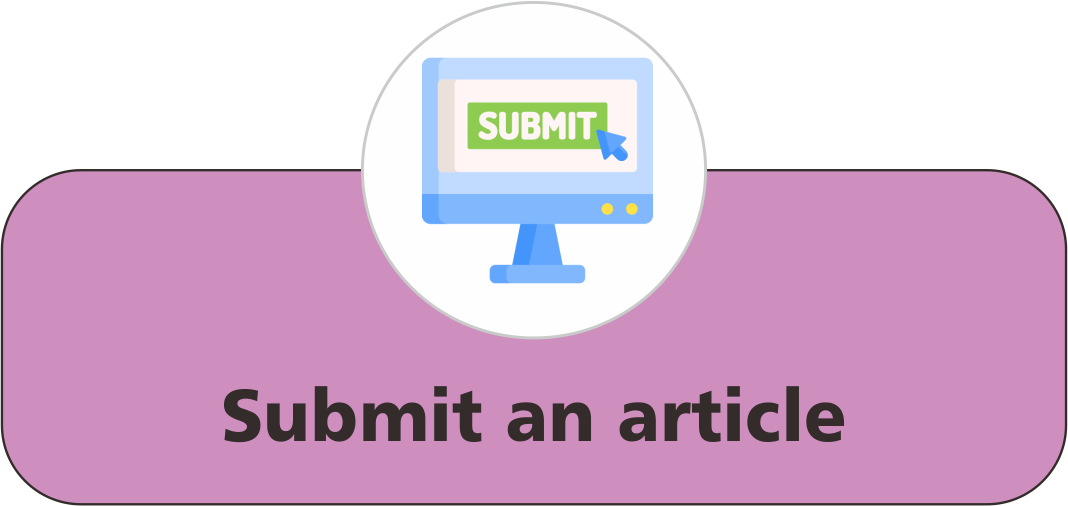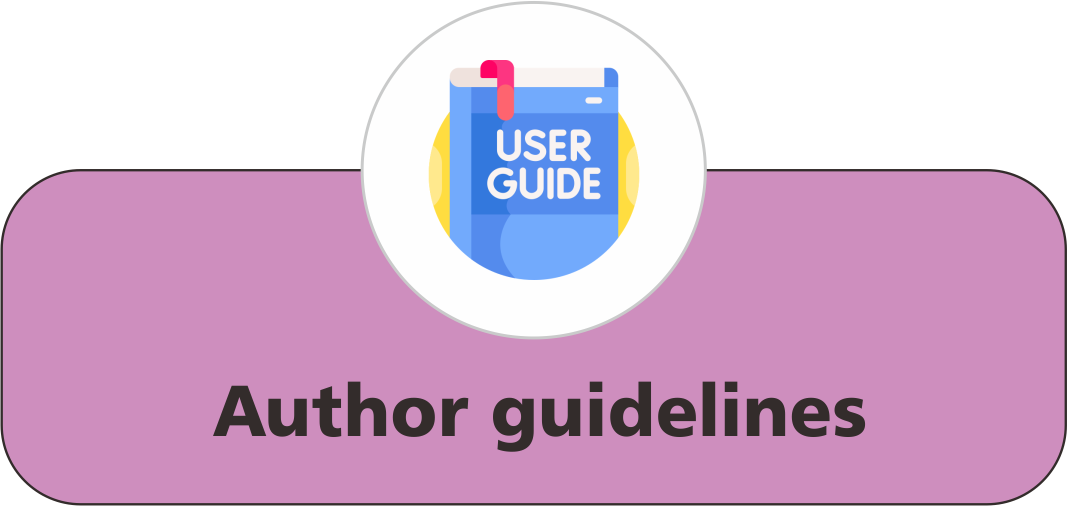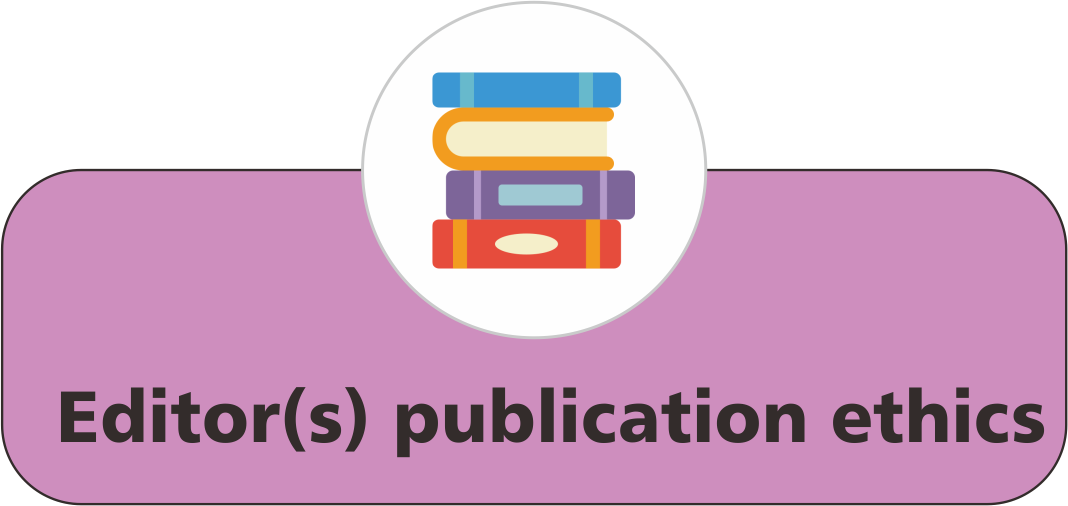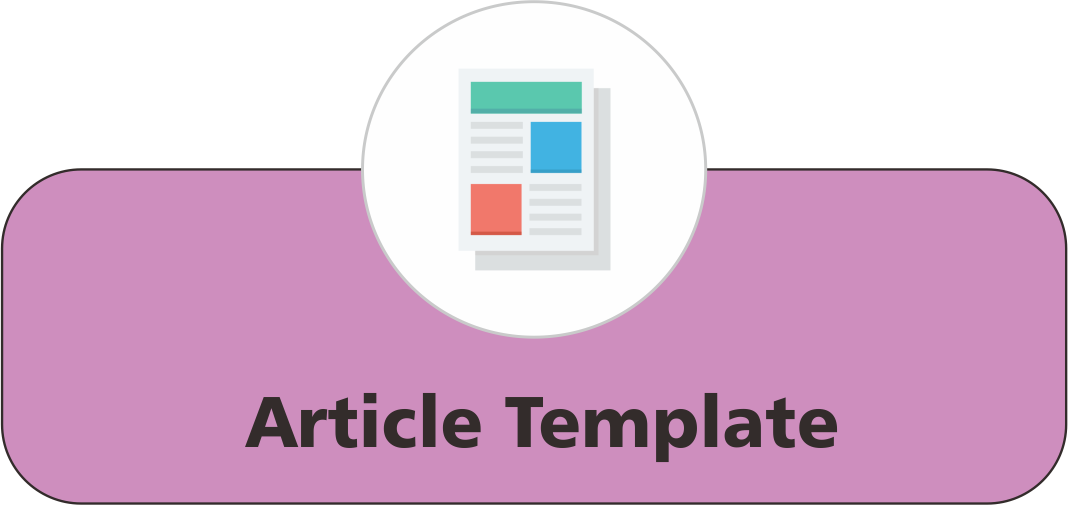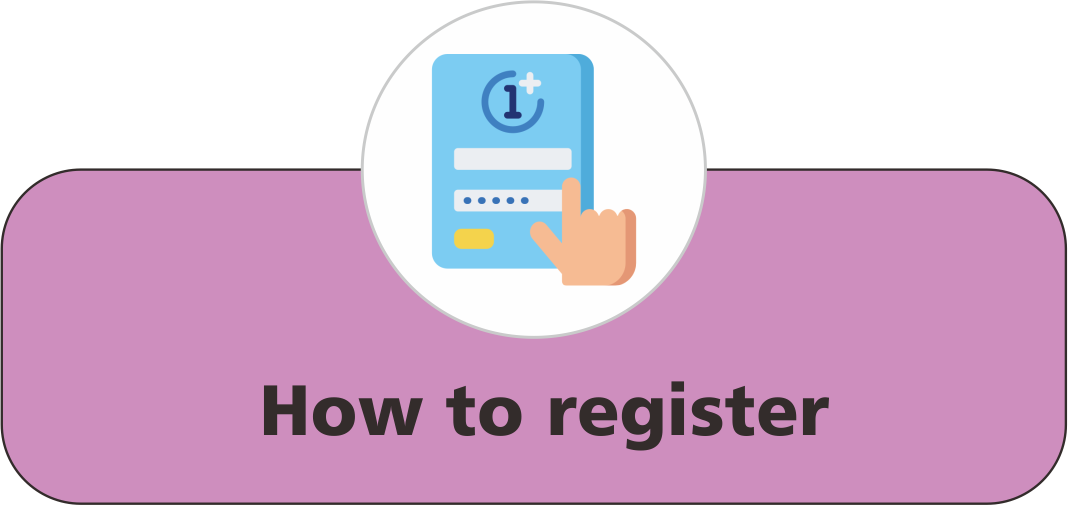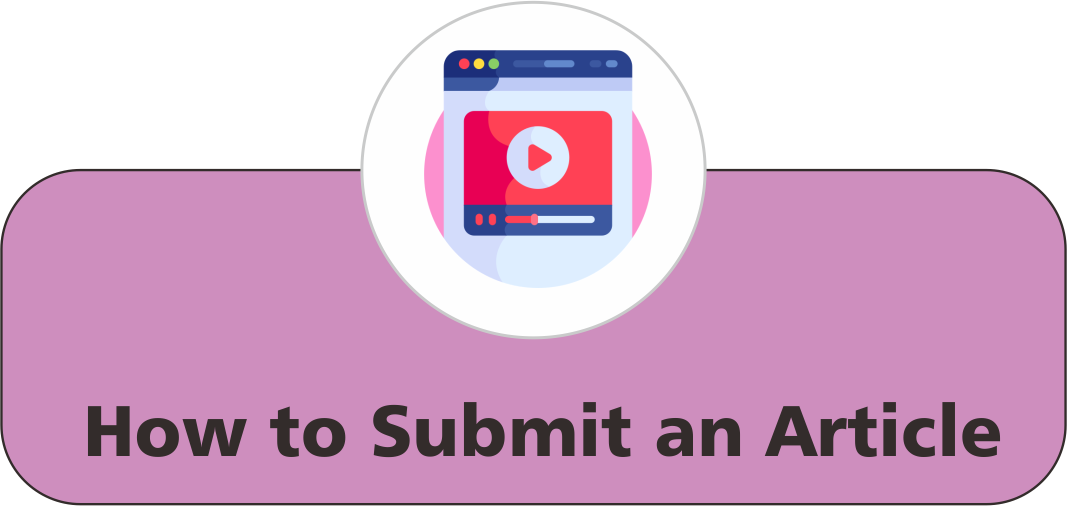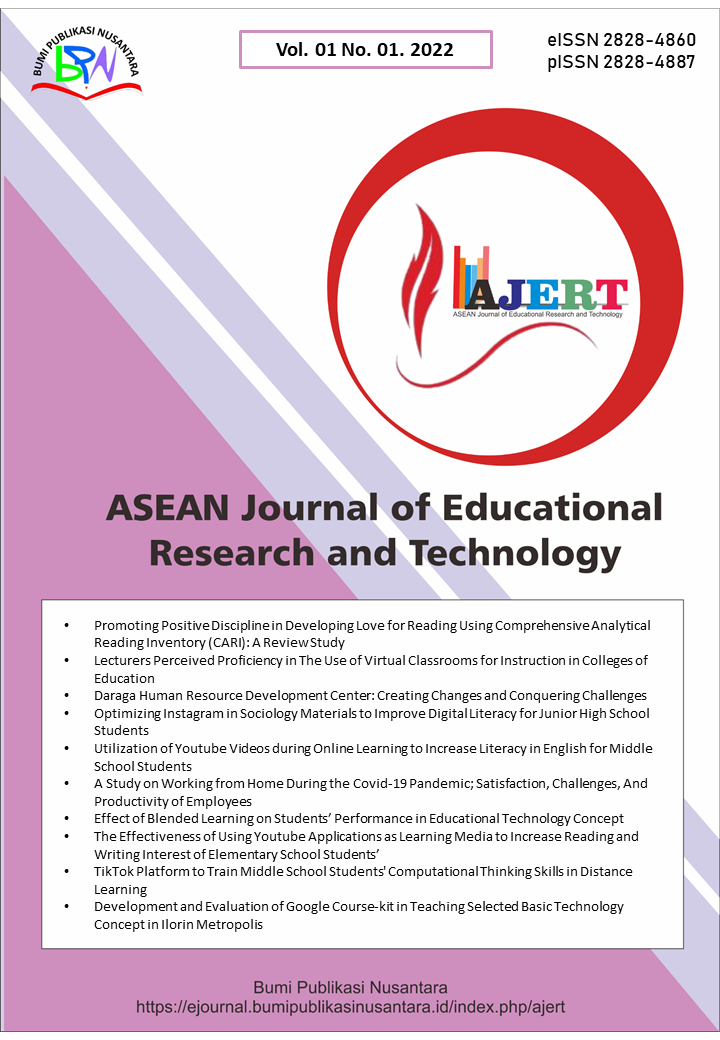Emerging Technologies for Sustainable Universities and Colleges: A Meta-Synthesis
 ), Charlyn E. Camposano(2), Sarah G. Rojo(3), Maria Crestina C. Dolorica(4), Jeric H. Polon(5), Gerry S. Digo(6),
), Charlyn E. Camposano(2), Sarah G. Rojo(3), Maria Crestina C. Dolorica(4), Jeric H. Polon(5), Gerry S. Digo(6),
(1) San Juan National High School
(2) Naagtan Elementary School
(3) Bilaoyon Elementary School
(4) Casiguran Technical Vocational School
(5) J. Gerona Elementary School
(6) Sorsogon State University
 Corresponding Author
Corresponding Author
Abstract
Keywords
References
Ahalt, S., and Fecho, K. (2015). Ten emerging technologies for higher education. Renci White Paper Series, 3(1), 1-18.
Alhazmi, A. K., Zain, A. A., Alsakkaf, N., and Othman, Y. (2023). Identification of sustainability barriers in higher education institutions (HEIs) and the role of technology in improving sustainability in HEIs. Journal of Science and Technology, 28(1), 30-37.
Alturki, U. and Aldraiweesh, A. (2021) Application of learning management system (LMS) during the COVID-19 pandemic: A sustainable acceptance model of the expansion technology approach. Sustainability, 13, 10991.
Alyoussef, I.Y. (2021). Massive open online course (MOOCs) acceptance: The role of task-technology fit (TTF) for higher education sustainability. Sustainability, 13, 7374.
Booth A. (2006). Brimful of STARLITE: Toward standards for reporting literature searches. Journal of the Medical Library Association, 94(4), 421–e205.
Bracco, S., Delfino, F., Laiolo, P., and Morini, A. (2018). Planning and open-air demonstrating smart city sustainable districts. Sustainability, 10(12), 4636.
Campos, N., Nogal, M., Caliz, C., and Juan, A. A. (2020). Simulation-based education involving online and on-campus models in different European universities. International Journal of Educational Technology in Higher Education, 17(1), 1-15.
Cavicchi, C. (2021). Higher education and the sustainable knowledge society: Investigating students’ perceptions of the acquisition of sustainable development competences. Frontiers in Sustainable Cities, 3, 664505.
Carayannis, E. G., and Morawska-Jancelewicz, J. (2022). The futures of Europe: Society 5.0 and industry 5.0 as driving forces of future universities. Journal of the Knowledge Economy, 13(4), 3445-3471.
Chatpinyakoop, C., Hallinger, P., and Showanasai, P. (2022). Developing capacities to lead change for sustainability: A quasi-experimental study of simulation-based learning. Sustainability, 14, 10563.
Chaubey, A. and Bhattacharaya, B. (2015). Learning management system in higher education. International Journal of Science Technology and Engineering, 2(3), 158-162.
Chebeň, J., Lančarič, D., Munk, M., and Obdržálek, P. (2020). Determinants of economic sustainability in higher education institutions. Amfiteatru Economic, 22(54), 462-479.
Chugh, R., Turnbull, D., Cowling, M., Vanderburg, R., and Vanderburg, M. A. (2023). Implementing educational technology in Higher Education Institutions: A review of technologies, stakeholder perceptions, frameworks and metrics. Education and Information Technologies, 28, 16403–16429.
Daniela, L., Visvizi, A., Gutiérrez-Braojos, C., and Lytras, M.D. (2018). Sustainable higher education and technology-enhanced learning (TEL). Sustainability, 10, 3883.
Dhaini, M., Jaber, M., Fakhereldine, A., Hamdan, S., and Haraty, R. A. (2021). Green computing approaches - A survey. Informatica, 45, 1-12.
Fraga-Lamas, P., Celaya-Echarri, M., Lopez-Iturri, P., Castedo, L.,Azpilicueta, L., Aguirre, E., Suárez-Albela, M., Falcone, F., and Fernández-Caramés, T. M. (2019). Design and experimental validation of a LoRaWAN fog computing-based architecture for IoT enabled smart campus applications. Sensors, 19(15), 1–30.
Fuchs, P., Raulino, C., Conceição, D., Neiva, S., de Amorim, W. S., Soares, T.C., de Andrade Lima, M., De Lima, M., Soares, C.R.J.C., and de Andrade Guerra, J.B.S. (2020). Promoting sustainable development in higher education institutions: The use of the balanced scorecard as a strategic management system in support of green marketing. International Journal of Sustainability in Higher Education, 21(7), 1477–1505.
Gatti, L., Ulrich, M., and Seele, P. (2019). Education for sustainable development through business simulation games: An exploratory study of sustainability gamification and its effects on students' learning outcomes. Journal of Cleaner Production, 207, 667-678,
Geng, S., Law, K.M.Y. and Niu, B. (2019). Investigating self-directed learning and technology readiness in blending learning environment. International Journal of Educational Technology in Higher Education, 16(17), 1-22.
Gkrimpizi, T., Peristeras,V., and Magnisalis, I. (2023). Classification of barriers to digital transformation in higher education institutions: Systematic literature review. Education Sciences, 13(7),746.
Griffiths, S., Wong, M.S., Kwok, C.Y.T., Kam, R., Lam, S.C., Yang, L., Yip, T.L., Heo, J., Chan, B.S.B., Xiong, G., and Lu, K. (2019). Exploring bluetooth beacon use cases in teaching and learning: increasing the sustainability of physical learning spaces. Sustainability, 11(15), 4005.
Gudiño Paredes, S., Jasso Peña, F. D. J., and de La Fuente Alcazar, J. M. (2021). Remote proctored exams: Integrity assurance in online education?. Distance Education, 42(2), 200-218.
Klempin, S., and Karp, M. M. (2018). Leadership for transformative change: Lessons from technology-mediated reform in broad-access colleges. The Journal of Higher Education, 89(1), 81-105.
Langenfeld T. (2020). Internet‐based proctored assessment: Security and fairness issues. educational measurement, Issues and Practice, 39(3), 24–27.
Leal Filho, W., Eustachio, J.H.P.P., Nita, A.C.N., Dinis, M.A.P., Salvia, A.L.S., Cotton, D.R.E., Frizzo, K., Trevisan, L.V., and Dibbern, T. (2023). Using data science for sustainable development in higher education. Sustainable Development, 2024, 1-20.
Matuska, S., Machaj, J., Hutar, M., and Brida, P. (2023). A development of an IoT-based connected university system: Progress report. Sensors, 23, 2875.
Ojokoh, B. A., Samuel, O. W., Omisore, O. M., Sarumi, O. A., Idowu, P.A., Chimusa, E. R., Darwish, A., Adekoya, A. F., and Katrsriku, F. A. (2020). Big data, analytics and artificial intelligence for sustainability. Scientific African, 9, e00551.
Pineda-Martínez, M., Llanos-Ruiz, D., Puente-Torre, P., & García-Delgado, M.Á. (2023). Impact of video games, gamification, and game-based learning on sustainability education in higher education. Sustainability, 15(17), 13032.
Rof, A., Bikfalvi, A., and Marques, P. (2022). Pandemic-accelerated digital transformation of a born digital higher education institution. Educational Technology and Society, 25(1), 124-141.
Sembey, R., Hoda, R., and Grundy, J. (2023). Emerging technologies in higher education assessment and feedback practices: A systematic literature review. Social Science Research Network, 2024, 1-18.
Smith, J. R., and Johnson, L. M. (2018). The role of information technology in promoting green computing practices in higher education. International Journal of Sustainable Computing, 12(3), 112-129
Sun, L. (2020). Design and application of web-based college English online learning system. 2020 2nd International Workshop on Artificial Intelligence and Education, 2020, 24-28.
Trevisan, L. V., Eustachio, J. H. P., Dias, B. G., Filho, W. L., and Pedrozo, E. A. (2023). Digital transformation towards sustainability in higher education: State-of-the-art and future research insights. Environment, Development and Sustainability, 26(2), 2789-2810.
Vakaliuk, T., Antoniuk, A., Morozov, A., Medvedieva, M., and Medvediev, M. (2020). Green IT as a tool for design cloud-oriented sustainable learning environment of a higher education institution. E3S Web Conferences, 166, 10013.
Wang, K., Li, B., Tian, T., Zakuan, N., and Rani, P. (2023). Evaluate the drivers for digital transformation in higher education institutions in the era of industry 4.0 based on decision-making method. Journal of Innovation and Knowledge, 8(3), 100364.
Weiss, M., Barth, M., Wiek, A., and Von Wehrden, H. (2021). Drivers and barriers of implementing sustainability curricula in higher education - Assumptions and evidence. Higher Education Studies, 11(2), 42-64.
Article Metrics
Abstract View : 1219 times
: 1219 times Download : 561 times
Download : 561 times
Refbacks
- There are currently no refbacks.
Copyright (c) 2024 Bumi Publikasi Nusantara

This work is licensed under a Creative Commons Attribution-ShareAlike 4.0 International License.

